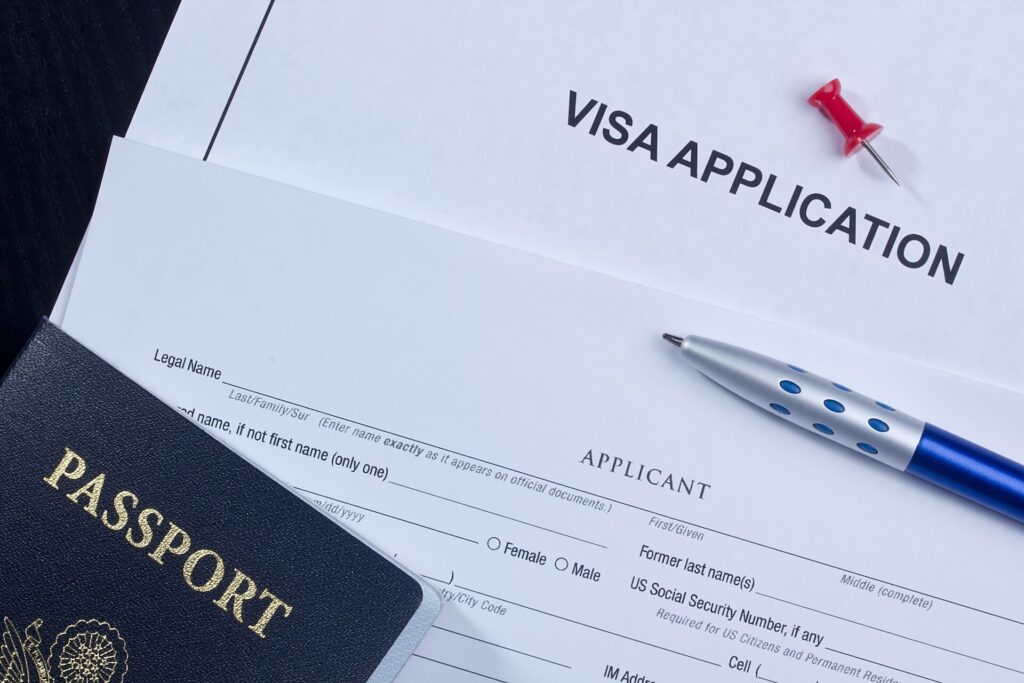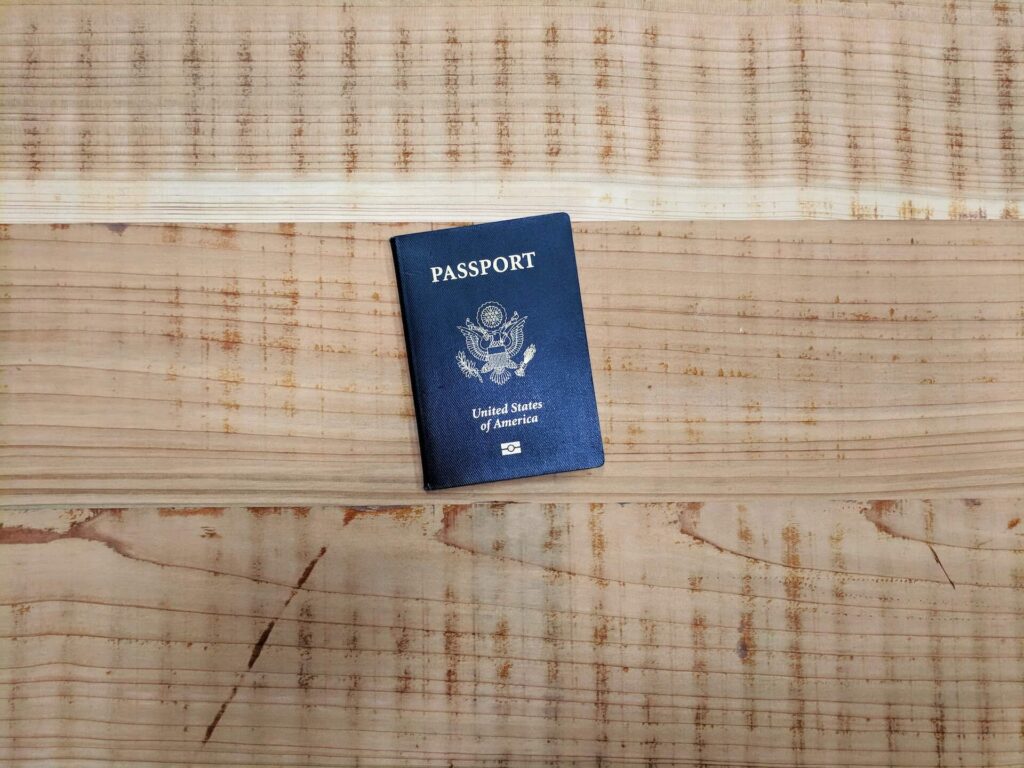Relocating to another country can be both exciting and intimidating. You may find yourself juggling a myriad of emotions, ranging from anticipation and curiosity to fear and uncertainty – it is only natural! However, if you are armed with the right information and resources on how to move abroad, there’s no reason why your relocation cannot become one of the best decisions in your life. In this blog post, we will discuss practical advice necessary to plan a successful relocation.
The Benefits of Moving Overseas and Starting Fresh
Moving internationally and starting fresh can bring numerous benefits of relocating to an individual’s life. Firstly, it provides the opportunity to experience a new culture and lifestyle, which can be both exciting and educational. This can lead to personal growth and development, as well as broadening one’s perspective and worldview. Secondly, it offers the chance to start anew and leave behind any negative experiences or relationships from the past.
Guaranteed prices for International Moving. No hidden fees or surprises!
The concept of relocating across the world can be particularly beneficial for those looking to make significant life changes or seeking a fresh start. Additionally, it can open up new career opportunities and provide a chance to learn new skills or languages. Finally, moving overseas can lead to new friendships and connections with people from diverse backgrounds, further enriching one’s life experiences. So, there are countless reasons to relocate – do you think it might be time to start preparing your relocation inventory? If so, you are definitely going to need our relocation hacks and tips – keep reading.

Planning Your Move Abroad – Key Considerations and Requirements
There are numerous factors to consider before you can pack for relocation and start a new life in another country. To make things easier, we’ll walk you through some of the essential legal and financial requirements you need to keep in mind. From visas to banking options, we’ve got you covered.
Understand Your Visa Requirements
Before you can go to a new country, you need to ensure that you have the necessary visa and other important documents to reside and work there. Each country has its own visa requirements, and it is important to research them thoroughly. Many visas have different specifications, such as the duration of your stay and whether you are allowed to work or visit only. There are different types of visas, such as business, student, and working visas.
The Legal and Financial Requirements for Moving Internationally
Every country has a different cost of living, which can vary greatly from city to city. Before choosing your new country, it is essential to research the cost of living in your desired location. This will give you an idea of how much money you will need to save before your relocation day, as well as how much it will cost to live comfortably once you are there.
Relocating to a different climate can come with a hefty price tag, from visa fees to shipping costs. Therefore, it’s essential to plan your finances in advance. Consider all the costs involved and create a budget that takes into account your income and expenses. You may also need to open a bank account in the new country, so do some research on the best banking options available.

How to Move Abroad With No Money and Live There Comfortably?
Living in another country can be an exciting opportunity for personal and professional growth, but it can also be an expensive endeavor. However, relocating abroad and living there on a budget is achievable with a bit of creativity. Here are five tips to help you figure out how to move abroad with no money or with a tight budget:
- Research visa requirements and potential sources of funding or financial assistance to help offset the costs of relocating and living abroad.
- Be strategic about when you choose to relocate, as certain times of the year may be more affordable for flights and accommodations.
- Consider alternative accommodation options such as house-sitting, Couchsurfing, or sharing a rental with roommates to save money on housing costs.
- Find ways to earn money while abroad, such as working remotely, teaching English, or freelancing.
- Take advantage of free or low-cost activities and experiences, such as visiting museums and parks, attending local events, and exploring nature.
Ways to Save Money During the Move
Relocating to another country can be a stressful experience, but luckily, there are several ways to save money during the process. With planning and smart decisions, you can reduce your expenses and make the process more affordable. Here are five relocation tips for saving on costs during the relocation:
- Declutter and donate or sell items that you no longer need or use to reduce the number of boxes you need to ship.
- Use free or low-cost packing materials, such as newspapers, towels, and clothing, instead of purchasing expensive packing supplies.
- If you’re not keen on the idea of booking packing assistance, consider throwing a packing party, so your friends and family can help you pack the boxes more efficiently.
- Book your relocation during off-peak periods, such as weekdays or the offseason, to save on the relocation company fees.
- When choosing a relocation company, compare quotes from multiple companies and negotiate for the best deal possible to get the most value for your money.
How to Move Abroad and Get a Job
So, how to get a job before you relocate? It’s important to research the local job market and identify industries and companies that align with your skills and interests. Start by browsing job boards and career websites. Make a list of potential employers and reach out to your network to see if they have any connections in your desired location. Attend career fairs and networking events to meet employers and learn more about job opportunities.
When applying for jobs abroad, it’s important to tailor your resume and cover letter to the local market. Research the cultural and professional norms in your desired location and adjust your application materials accordingly. Highlight your relevant skills and experience and demonstrate how you can contribute to the local workforce. Be sure to include any language skills or cross-cultural experience you have, as this can be a valuable asset for employers. Lastly, don’t forget to prepare for your job interview – here’s a video that will help you with that:
Working in a new country can be a challenging and overwhelming experience, but it’s important to remain flexible and adaptable throughout the job search process. Be open to new opportunities and experiences, and be patient in the face of cultural and linguistic barriers. Seek support from local expat communities or professional organizations to help you navigate the challenges of working abroad.

How to Move Abroad as an American – Special Considerations When Moving From the US
Depending on the country you’re going to, you may need to apply for a student visa, work visa, spouse visa, or residency permit, among other types of documents. The application process can be complex, bureaucratic, and time-consuming, so it’s important to start researching and preparing well in advance.
You can consult the embassy or consulate of your destination country in the US, as well as online resources such as the State Department’s travel advisories, to learn more about visa requirements and immigration policies. Make sure you have all the necessary documents, such as a passport, medical records, and police clearances, and check for any updates or changes to the visa regulations.

Finding Housing in a Foreign Country
This can be challenging, but it’s an important aspect of the relocation process. Firstly, it’s essential to research the housing market and familiarize yourself with local laws and customs related to renting or buying property. Next up, you need to consider your budget and lifestyle needs when selecting a location and type of accommodation.
Use online resources and social media to connect with locals and expats who can provide recommendations and advice on housing options. Of course, you need to be prepared to negotiate and understand the terms of the rental or lease agreement before signing.

Adjusting to Life Abroad or How to Stay Respectful
One of the most significant challenges when living in a foreign country is the language barrier. It’s challenging to communicate effectively with the locals when you don’t speak their language. That’s how learning the local language can be the best way to integrate into the culture and improve your communication skills.
Differences in Customs and Etiquette
Different cultures have different customs and etiquette that must be respected – you might be in for a bit of culture shock. For instance, in some cultures, it’s rude to eat with your left hand or to show the sole of your feet. Take time to learn the customs and etiquette of the local culture to avoid offending anyone.
The pace of life varies from one culture to another. Some cultures prioritize work and productivity, while others emphasize relaxation and leisure time. For instance, in some cultures, it’s not uncommon to take a siesta or break from work during the day. Don’t be surprised if things seem to be slower in some countries. Embrace the new pace of life and try to adapt to it.

The Challenges to Mental Health During a Relocation Abroad
Relocating abroad can present numerous challenges to an individual’s mental health. One of the primary challenges is adapting to a new environment, which can be overwhelming and stressful. The unfamiliarity of a new country can lead to feelings of homesickness and nostalgia, causing anxiety and depression. This can result in a sense of disorientation and confusion, making it challenging to establish relationships and find one’s place in the new country.
Language barriers can also pose a significant challenge, making communication difficult and exacerbating feelings of social isolation. The disruption of social networks, support systems, and personal relationships can also lead to feelings of loneliness and a lack of belonging, which can further impact mental health. Coping with these challenges requires patience, resilience, and a willingness to seek support from friends, family, or mental health professionals if needed.

Relocate Successfully and Thrive in a New Country With the Help of International Moving Company
Moving overseas may seem like an intimidating experience, but with the right international movers by your side, there is no need to fret. Everyone deserves a chance to start anew and expand their comfort zone. Taking steps to hire a reliable and experienced international mover will make your relocation much smoother and less stress-inducing. The best company for this job is our International Moving Company – we’re always ready to help with our excellent international moving services.
So do not hesitate to contact us and ask questions about how our relocation company can help you relocate as best as possible while making sure all your essential belongings arrive safely. Invest in a team that knows how to prioritize safety, customer service, and success, just like we do. Whether you are embarking on this journey alone or with family members, leave the hard questions to International Moving Company and start planning a successful move abroad today!
FAQ
What Are the First Steps I Should Take When Planning a Move Abroad?
The first steps when planning to relocate abroad involve researching your desired destination, including its culture, language, climate, and job market. You should also determine the necessary documentation and legal requirements, such as visas and work permits, and develop a realistic budget to cover the costs of travel and living expenses.
What Are the Different Types of Visas Available for Moving Abroad?
There are various types of visas available for living abroad, including tourist visas, student visas, work visas, and permanent residency visas. The requirements and application process for each type of visa vary depending on the country and its immigration policies.
How Much Money Do I Need to Save Before Moving Abroad?
The amount of money needed to relocate abroad depends on various factors, including the cost of living in your desired destination, your lifestyle needs, and the length of your stay. It’s essential to create a realistic budget that covers the costs of travel, accommodation, transportation, food, and other expenses for the first few months.
How Long Does It Typically Take to Plan and Execute a Move Abroad?
The timeline for planning and executing a relocation abroad can vary depending on several factors, such as the destination country, visa processing times, and the amount of preparation needed. Typically, it takes several months to a year to plan and execute a relocation abroad, including research, documentation, packing, and logistics. It’s essential to start the planning process as early as possible to avoid last-minute relocation stress and unexpected costs.
Can I Move Abroad Without a Job Already Lined Up?
Yes, it’s possible to relocate abroad without a job already lined up, but it requires careful planning and financial preparation. Before relocating, research job opportunities in your desired destination and consider developing skills that are in high demand in the local job market. You should also develop a realistic budget that covers the costs of living expenses for the first few months without a steady income.
How Do I Prepare for Cultural Differences When Moving Abroad?
Getting used to cultural differences is an essential aspect of living abroad. Start by researching the culture, customs, and traditions of your destination country. You can also connect with locals or expat communities online to gain insight into the culture and lifestyle. Learning the local language can also be helpful in adapting to a new environment. It’s essential to approach cultural differences with an open mind and a willingness to learn.
